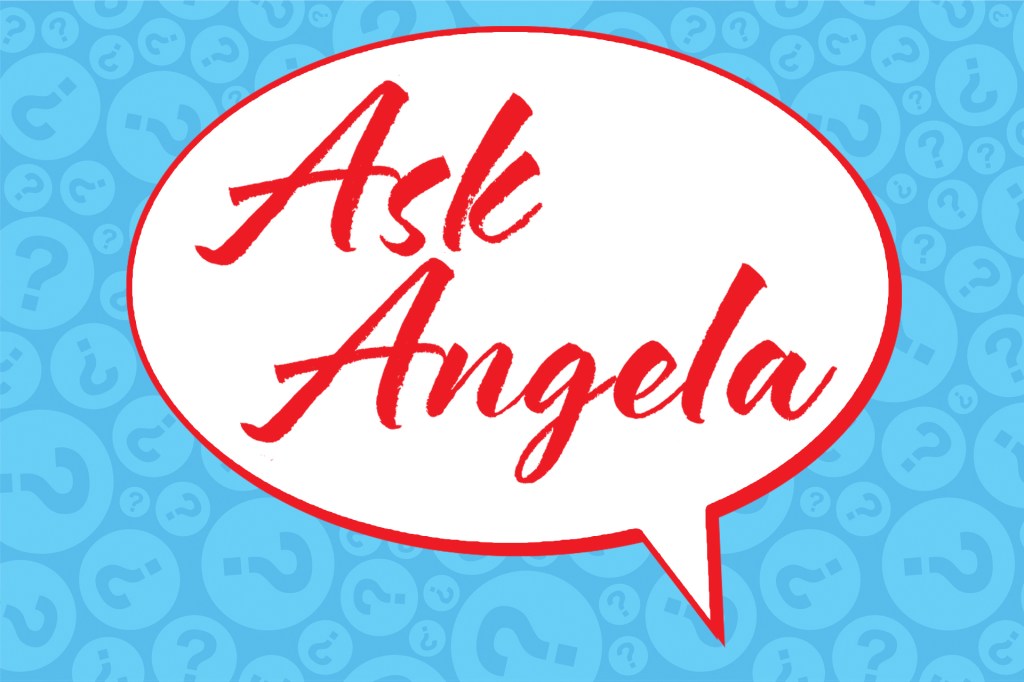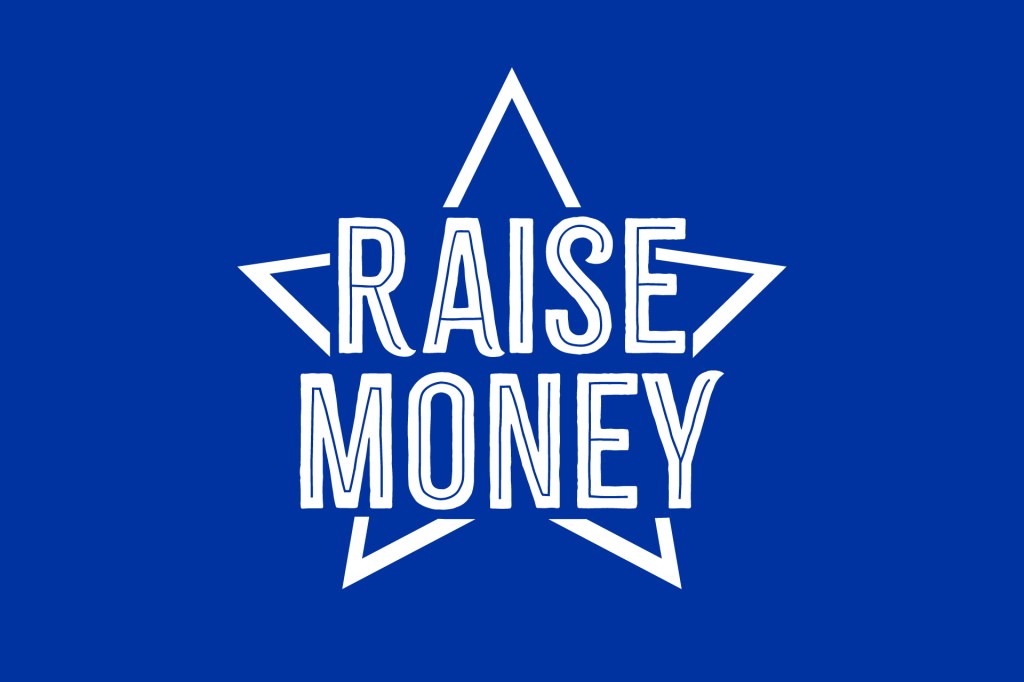Digital Defender
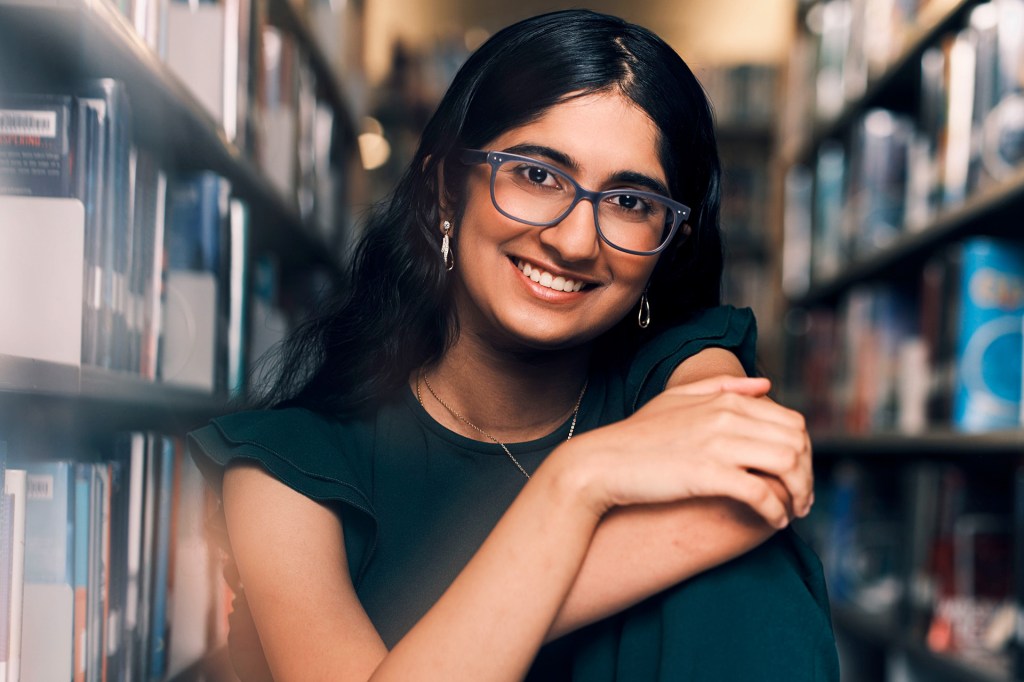
In 2024, Tejasvi Manoj’s grandfather got an email from someone pretending to be a relative, asking for $2,000. It seemed to be an emergency, so he was ready to send the money. Luckily, he first called Tejasvi’s dad, who told him to wait. They called the relative to see if the email was real. The response: “I never asked you for money.” The unsuspecting senior had nearly fallen victim to a cybercrime.
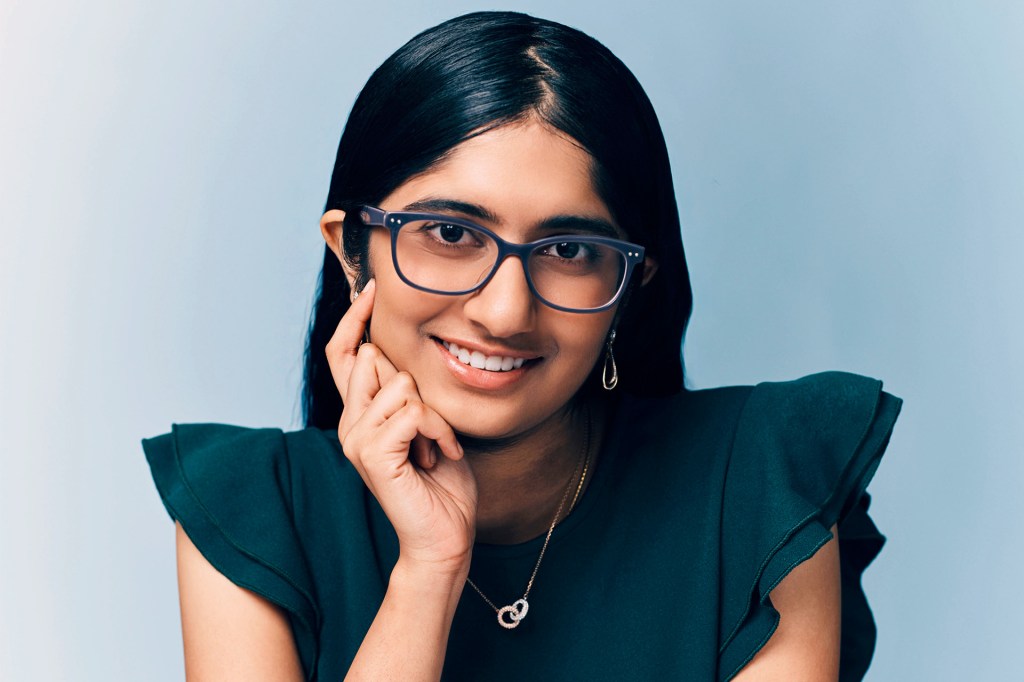
SAFETY FIRST Tejasvi Manoj, 17, is TIME’s Kid of the Year. She’s being honored for protecting older people from falling victim to scams.
ZERB MELLISH FOR TIME
Tejasvi, 16 at the time, was angry. She couldn’t believe that criminals would try to take advantage of someone’s lack of Internet savvy. A junior at Lebanon Trail High School, in Frisco, Texas, she began researching how common such scams are.
Very common, it turns out. According to the Federal Trade Commission, online scams accounted for a potential $5 billion in losses for people over 60 in 2024. And that figure doesn’t include losses that victims were too embarrassed to report. “Tejasvi was surprised that there was such a lack of awareness among her grandparents,” says her mom, Aishwarya Manoj. “She went on with her research and found out that it was . . . a much larger problem.”
Older Americans clearly need protection. Tejasvi is determined to provide it. Now 17, she has built and launched a working version of a website called Shield Seniors. It’s designed to educate people 60 and older about online scams.
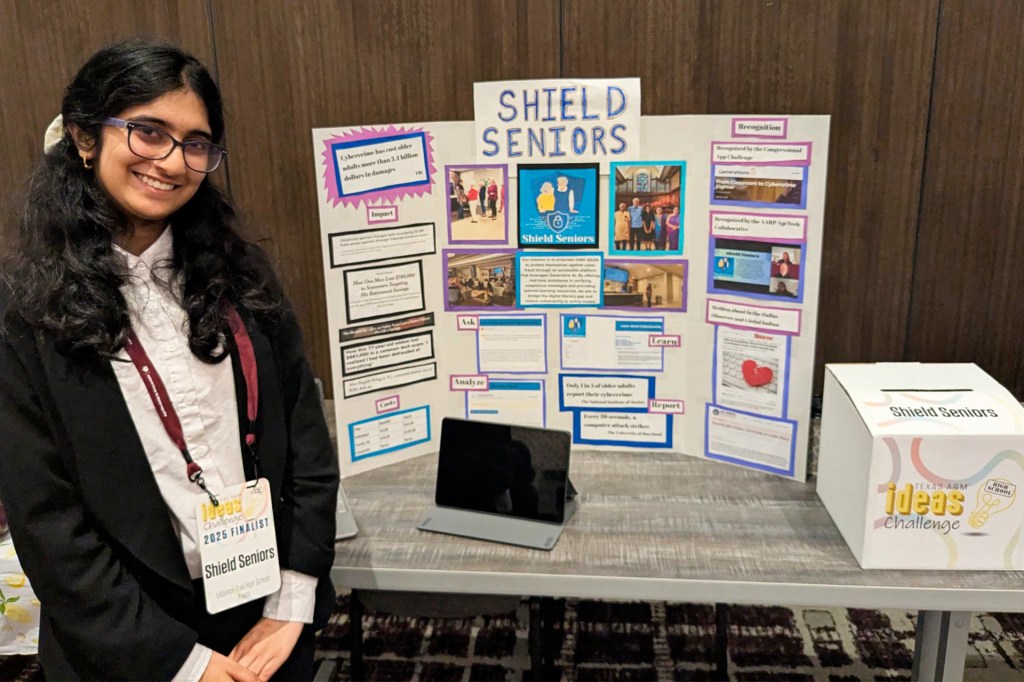
BIG IDEA Tejasvi presents Shield Seniors at the Texas High School Ideas Challenge in April.
COURTESY PHOTO
Security Breach
Shield Seniors analyzes suspicious emails and messages that users upload. If these prove to be fraudulent, it provides links to where they can be reported. Tejasvi was recognized for her work with an honorable mention in the 2024 Congressional App Challenge. She gave a 2025 TEDx talk in Plano, Texas, about the need to build “digital bridges” to all people. She also teaches cybercrime seminars at assisted living facilities.
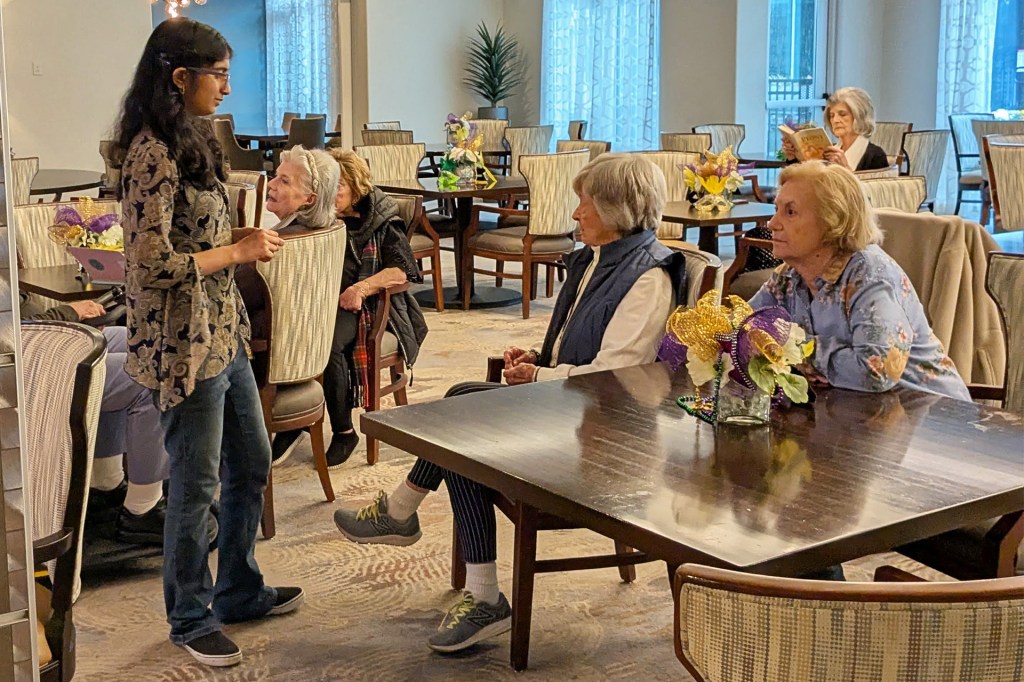
EDUCATING OTHERS Tejasvi holds a cybersecurity seminar at a senior center. She teaches older adults about digital literacy.
COURTESY PHOTO
“I remember going to my first seminar,” Tejasvi says. “I was super nervous.” She remembers thinking, “What if no one shows up? What if I totally mess up?” She didn’t mess up. “There were so many people who were really interested,” she says, “taking notes on their notepads, which was really nice. At the end, some of them came up to me with questions, and I was able to help them.”
A History of Helping
Tejasvi started volunteering in sixth grade. She has provided online tutoring and helped out at a food bank. “I think it’s really important,” she says.
Shield Seniors is another way Tejasvi helps people. She was prepared to do the coding that would make the project possible. She began coding in eighth grade, taking cybersecurity classes and attending summer programs sponsored by the nonprofit group Girls Who Code. She has also gotten involved in CyberPatriot, a program that gets kids interested in cybersecurity and STEM subjects. “I code mostly in Java and Python, and a bit of HTML,” Tejasvi says. “I really love the fact that you can solve problems with your computer, and I really like creating.”
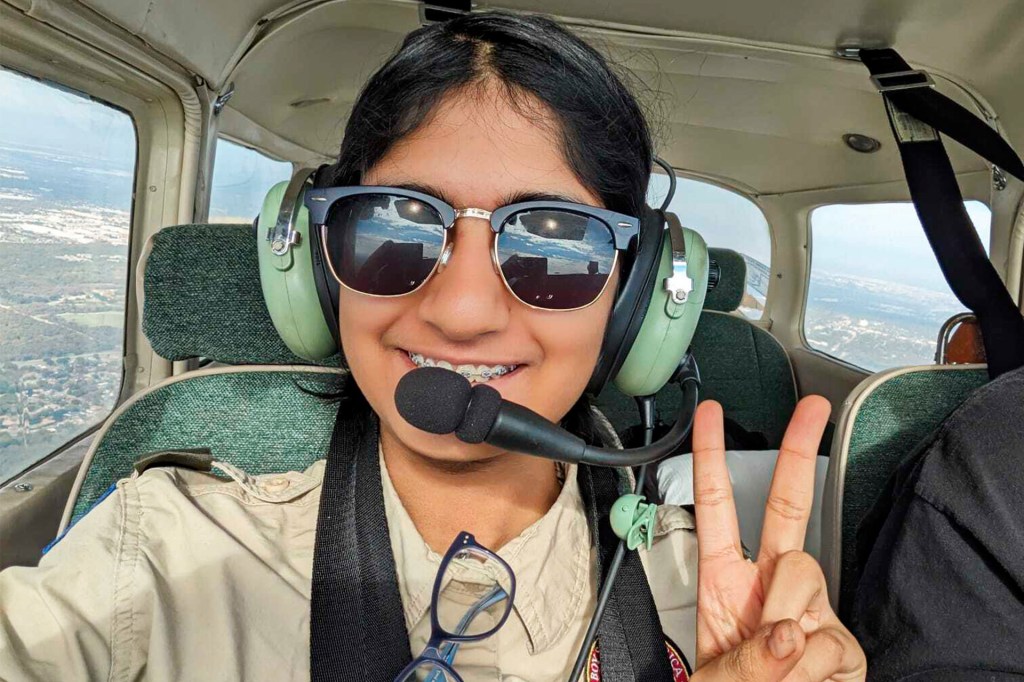
FLYING HIGH Not only Tejasvi’s ideas are taking flight. She’s earned her Scouting America aviation badge.
COURTESY PHOTO
Tejasvi is looking ahead. She wants to study computer science in college. And she’s raising funds to expand and improve Shield Seniors.
Inspired?
Let Tejasvi’s story inspire you to help others in your community. Click below for ideas about how you can boost literacy and make the world a brighter place.






